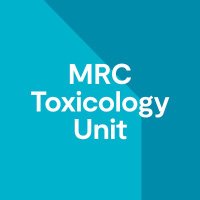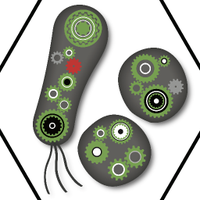
Kiran Raosaheb Patil
@kiran_r_patil
Professor of Molecular Systems Biology, @MRC_TU @Cambridge_Uni MRC & ERC Investigator. Metabolic networks, Microbial communities, Evolution, Comp. modelling.
ID: 2763503587
24-08-2014 18:32:34
2,2K Tweet
2,2K Followers
1,1K Following



Thank you Indra Roux ! A key point for predictive and precision #SynBio is to to map genotype-phenotype relation at scale, its rather difficult to precision engineer black boxes :)




Toxic ‘forever chemicals’ called PFAS can’t be avoided - and they've been linked with health issues including a higher risk of certain cancers. Work led by Kiran Raosaheb Patil at the MRC Toxicology Unit has found our gut microbiome could play a helpful role in removing PFAS from our body. The

PFAS "Forever Chemicals" Absorbed via Human Gut Bacteria in Mice Mouse study shows human #gut bacteria can absorb #PFAS, hinting at potential pathways to cut “forever chemicals” in the body Kiran Raosaheb Patil MRC Toxicology Unit #microbiome #foreverchemicals hubs.ly/Q03vrWG30

News pod: Will Scott Imperial College London on fitter fat cells; Kiran Raosaheb Patil MRC Toxicology Unit on microbes and PFAS; Michael Davies UCL Mathematical & Physical Sciences on space ice structure; David Gozzard on why the Earth will spin faster; and Ruth Ogden on the psychology of time. thenakedscientists.com/podcasts/naked…

Could gut microbes protect us from toxic 'forever chemicals’? 🧪 Scientists from MRC Toxicology Unit have discovered that certain species of microbe found in the human gut can absorb PFAS – the toxic and long-lasting ‘forever chemicals.’ They say boosting these species in our gut
![MRC Toxicology Unit (@mrc_tu) on Twitter photo VACANCY: We are looking for a Public Engagement and Communications Manager [temporary cover] to lead on our communications and outreach activities
Full details ⏩ buff.ly/48ozCry
Apply by 5th November
#Vacancies #ScienceJobs VACANCY: We are looking for a Public Engagement and Communications Manager [temporary cover] to lead on our communications and outreach activities
Full details ⏩ buff.ly/48ozCry
Apply by 5th November
#Vacancies #ScienceJobs](https://pbs.twimg.com/media/GafZZG1WIAAaNHR.jpg)

